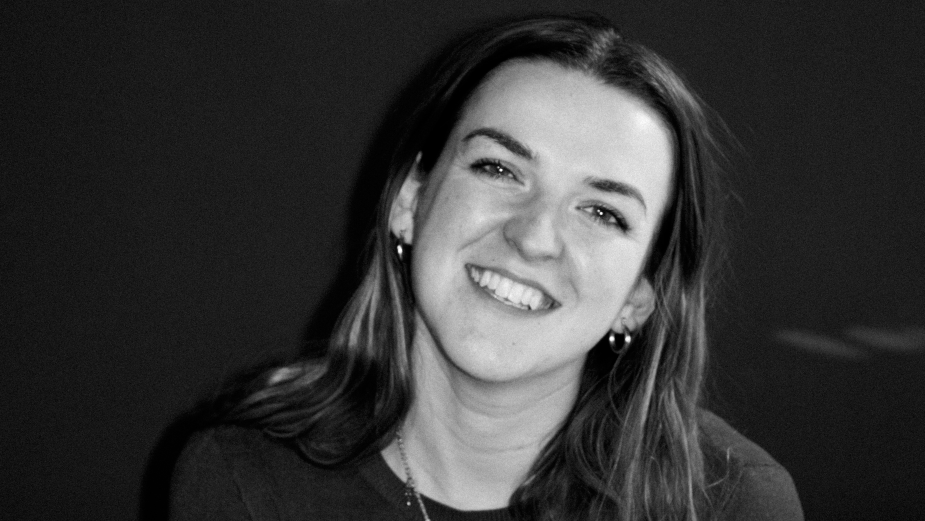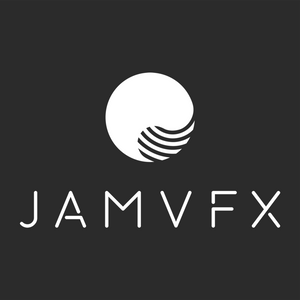
Meet Your Makers: Always Being One Step Ahead with April-Rae Hughes

April-Rae Hughes is London-based and has been in the industry for almost a decade. Having worked in post production for the majority of this period, she has worked on a range of projects from commercials to long-form. April brings experience, a positive outlook, and great flexibility to any brief.
LBB> What first attracted you to production - and has it been an industry you’ve always worked in or did you come to it from another area?
April> At 15 I was fortunate enough to secure work experience as a runner on The Paul O’Grady Show, which was my absolute first experience of the industry. I remember seeing this woman organising and planning everything and everyone; she was respected by the entire crew, and I felt such a great admiration for the vital role she was performing.
This was the spark for me. Seeing behind the scenes and how everything comes together; the multiple layers to the industry and the variety of roles.
Before settling in the industry on a permanent basis, I worked in fashion as a stylist’s assistant and fashion assistant at a few publications, using having one foot in the creative industry as a way to eventually get back to production.
Eventually I met a producer at a creative agency who needed a production assistant for upcoming shoots and events. This was my first ‘proper’ industry role and I immediately loved the fast-paced nature of the job, and solving problems every day.
LBB> What was your first role in the production world and how did this experience influence how you think about production and how you grew your career?
April> I was a production assistant and runner at a creative agency, helping with still and video campaigns and events. The producer who got me in was a massively positive influence, by giving me a lot of responsibility and trusting me to take work on, whilst continually supporting my development. This gave me confidence within myself that I had the right skill set for the industry.
She taught me as long as you have an eye on everything and a good team, it will all come together.
LBB> How did you learn to be a producer?
April> I have learnt on the job over the years; I’m very hands on, and feel it suits me best. When I made the decision that my goal was to work in post production I joined an in-house agency post production company - I feel the team within the company trained me very well, and the seniors were so generous by giving me so much time and tutoring. I would say working alongside and sitting with the senior members of staff provided me valuable insight and knowledge. That, alongside strong management and a review program helped me learn quickly.
LBB> Looking back to the beginning of your career, can you tell us about a production you were involved in where you really had to dig deep and that really helped you to grow as a producer?
April> As a freelance production assistant on a short film, the production manager never arrived! I was young and inexperienced and had to fill their position; a weekend of night shoots, in the middle of nowhere, with decisions made on the fly. It was character building in the extreme!
LBB> A good producer should be able to produce for any medium, from film to events to digital experience. Do you agree or disagree with this statement? Why/why not?
April> Yes - I think with training and personal preference, people will naturally develop a specialism, however good producers will always be able to work across mediums.
LBB> What advice would you give to people who are interested in becoming a producer?
April> You will get there, it might feel like a lot at the start but it will be worth it.
There are lots of different routes in, take a look at different roles in production, post production and agencies. You can always move across later but explore all of them, especially at the start of your career.
Any problem that appears isn’t always a problem, it's a challenge to overcome and is expected on every job. Stressing about every single one of these challenges is not worth your time.
LBB> What’s your favourite thing about production and why?
April> No two days are ever the same and a quiet day never stays quiet. I also love a challenge!
LBB> How has production changed since you started your career?
April> There has been a shift towards acceptance of remote working which has allowed us to work with teams and freelancers around the world seamlessly. It has also allowed for people to have a better work life balance with the opportunity to not always commute into the office.
LBB> And what has stayed the same?
April> Deadlines remain tight as ever.
LBB> What do you think is the key to being an effective producer - and is it something that’s innate or something that can be learned?
April> I think you need to always be one step ahead by prioritising prep and giving time for any unforeseen issues that may occur along the way. I think it is innate as I think organising is definitely not everyone's bag and although you can train techniques to be better - coming up with approaches to make a situation more organised should come naturally.
LBB> What are your personal ambitions or aspirations as a producer?
April> I want to continue working on incredible projects with people that inspire me.
LBB> As a producer your brain must have a neverending "to do" list. How do you switch off? What do you do to relax?
April> I won’t say I necessarily ever switch off but I find a combination of dance, running, cold water swimming, and reading all help me relax outside of work. Also regularly getting out of the city and into the countryside helps me feel more relaxed and remind myself of the bigger picture, and of life beyond a screen.
LBB> From your experience what are the ingredients for a successful production?
April> A strong team, a positive and honest client relationship, and clear communication across the board.
LBB> What’s the key to a successful production-client relationship?
April> Honesty and trust - I think if you have these with your client you can help each other out and get more done.
LBB> How long have you worked for JAMVFX?
April> Coming up to one year.
LBB> What’s your position at the company?
April> VFX producer
LBB> How does JAMVFX support your career progression?
April> The entire JAMVFX team have been incredibly supportive. The founders are always available and giving advice, and my more experienced colleagues are very open and collaborative. In addition to this pastoral support, JAMVFX have put me through two courses and have proactively had conversations regarding career progression and goal setting.
LBB> Best piece of advice you’ve been given?
April> When faced with a hurdle - Stay calm and don’t flap













